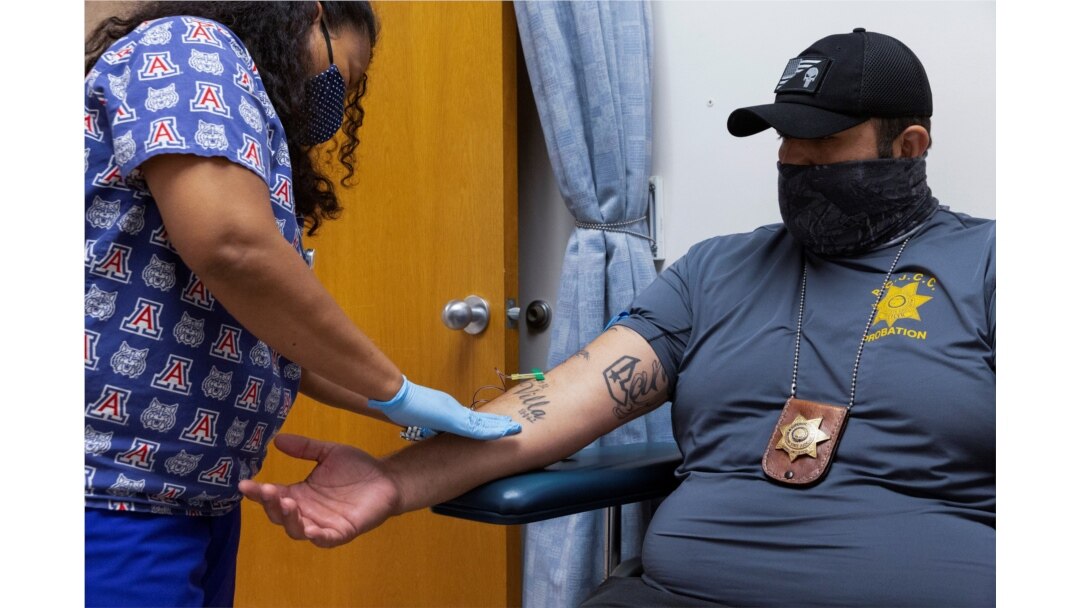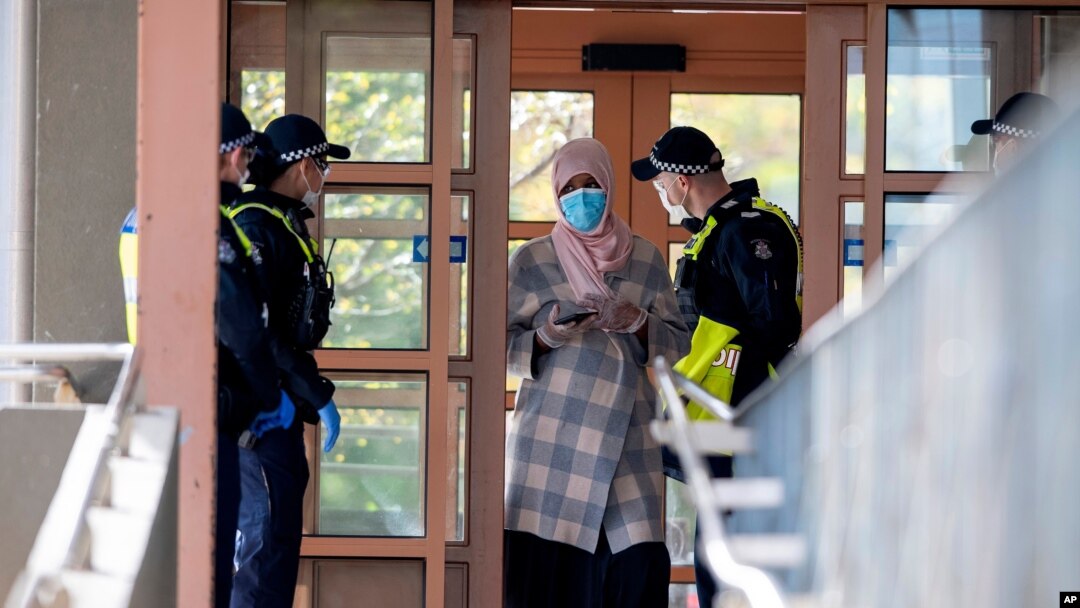Australia is ordering non-essential businesses in Melbourne, its second-largest city, to close for six weeks starting Wednesday as authorities try to control an outbreak that accounts for nearly all of the country’s new coronavirus cases.
Health officials reported Monday 429 new COVID-19 infections and 13 deaths in Victoria state, which includes Melbourne.
In addition to closing most stores, other industries such as construction and meat production will have to limit their operations starting Friday.
The Victoria government declared a COVID-19 disaster in Melbourne on Sunday, and with the new restrictions going into effect, Australian Prime Minister Scott Morrison said Monday that workers in Victoria who do not have paid sick leave and have to isolate themselves will be eligible to receive a payment of about $1,000.
Such payments are meant to encourage people to abide by advice that they stay home if they test positive, exhibit symptoms or may have been exposed to the virus, instead of feeling financial pressure to keep working and possibly expose others.
“It’s heartbreaking. This pandemic, this virus is taking a heavy toll and now’s the time, as it has been throughout this pandemic, that we continue to provide support to one another,” Morrison said.
In the United States, which has about one-fourth of the world’s 18 million confirmed coronavirus cases, negotiations are continuing Monday between the White House and congressional Democrats on a new aid package that would include federal money to help the millions of people who are unemployed.
Many lost their jobs during the pandemic as lockdown restrictions and new consumer habits badly hurt the economy, and a previous round of federal aid that provided $600 a week to the unemployed expired last week.

First responders receive antibody testing for the coronavirus disease (COVID-19) in Arizona, July 10, 2020.
The talks come as the United States deals with an ongoing surge in cases that began in June and pushed leaders in some states to reinstate some of the restrictions they had lifted in hopes economic activity could return without a resurgence of the virus.
White House coronavirus task force coordinator Dr. Deborah Birx told CNN Sunday the outbreak has hit a new phase in the United States with the spread of the virus becoming “extraordinarily widespread," reaching rural areas as much as big cities.
“To everybody who lives in a rural area: You are not immune or protected from this virus,” Birx said.
In the Philippines, where the total number of cases has surpassed 100,000, new lockdown restrictions go into effect in the capital, Manila, and five densely populated provinces for a period of two weeks.
During that time, people will be allowed to make only essential travel and mass transit will be barred.
Medical groups in the country had asked for the reimposition of restrictions in order to allow health workers under the strain of caring for coronavirus patients a chance to regroup and for the government to recalibrate its efforts in response to the pandemic.
“Our health care workers are burnt out with the seemingly endless number of patients trooping to our hospitals,” the medical groups said in a letter to Duterte.


